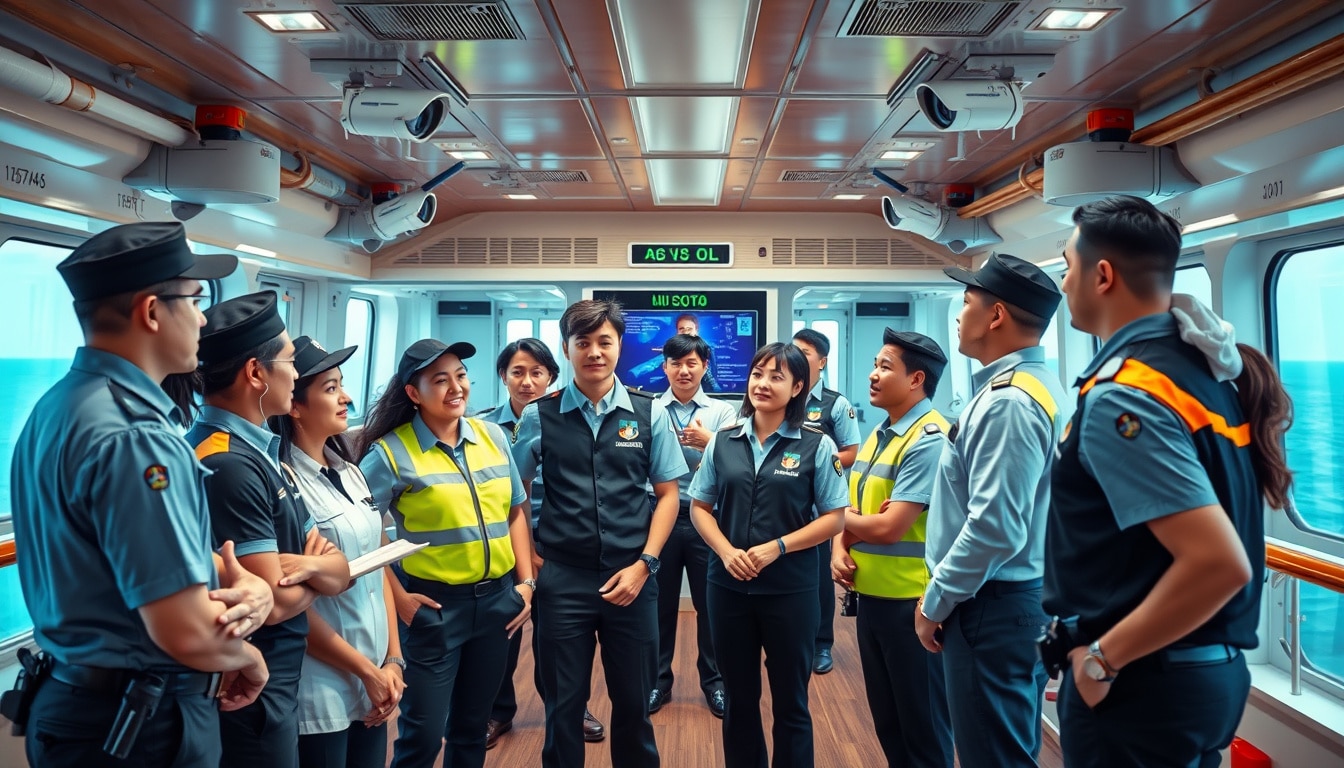In today’s interconnected maritime landscape, compliance with the International Ship and Port Facility Security (ISPS) Code is not just a regulatory necessity but a fundamental aspect of operational integrity. Many companies operate under the assumption that they are ISPS-compliant, often due to a false sense of security stemming from outdated practices or misunderstandings about the code’s requirements. However, this misconception frequently becomes apparent during ISPS audits, where the realities of their compliance—or lack thereof—are tested. In this article, we delve into the key requirements of ISPS compliance, address common misconceptions that lead to non-compliance, and outline the audit process, shedding light on what companies typically overlook. Furthermore, we present best practices for preparing for an ISPS audit, empowering maritime professionals, shipping companies, and port facility personnel to ensure their operations meet or exceed compliance standards.
Key Takeaways
- ISPS compliance requires a nuanced understanding of both key requirements and industry standards.
- Many companies hold misconceptions about their compliance status due to lack of thorough evaluations.
- The audit process often reveals overlooked areas that can jeopardize perceived compliance.
- Preparation for an ISPS audit should include comprehensive reviews and addressing potential gaps.
- Implementing best practices for ISPS compliance can significantly ease the audit workload and improve readiness.
Understanding ISPS Compliance: Key Requirements
In the maritime industry, especially for shipping companies and port facility personnel, understanding ISPS compliance is critical to ensuring safe and secure operations. The International Ship and Port Facility Security Code (ISPS Code) was established to enhance the security of ships and port facilities worldwide, but many organizations mistakenly believe they are ISPS-compliant until the audit begins. This often results from a lack of comprehensive training and misunderstandings about the core requirements. Key elements of ISPS compliance include conducting security assessments, developing and implementing security plans, and maintaining thorough documentation for audits. Regular drills and exercises must also be conducted to ensure all personnel are adequately prepared for potential security threats. By addressing these fundamental areas, maritime professionals can not only achieve genuine compliance but also foster a robust security culture that protects both personnel and assets from evolving threats.
Common Misconceptions About ISPS Compliance
In the maritime industry, why companies think they’re ISPS-compliant… until the audit starts can often be attributed to a series of common misconceptions surrounding the International Ship and Port Facility Security (ISPS) Code. A prevalent belief is that merely implementing documentation and basic procedures suffices for compliance; however, this limited understanding can lead to substantial pitfalls. Companies may assume that a single audit or assessment guarantees ongoing compliance, neglecting the dynamic nature of security needs and regulatory requirements that evolve with threats. Additionally, there’s a tendency to conflate compliance with the presence of physical security measures alone, such as fencing or surveillance cameras, without recognizing the importance of personnel training and drills as integral components of an effective security plan. Ultimately, the key to genuine compliance lies not just in having a security system in place, but in fostering a comprehensive culture of security awareness among all staff members—a mindset that sees compliance as an ongoing process rather than a box to be checked.
‘The greatest enemy of knowledge is not ignorance, it is the illusion of knowledge.’ – Daniel J. Boorstin
The Audit Process: What Companies Overlook
The Audit Process: What Companies Overlook \nIn the maritime industry, the ISPS Code plays a critical role in ensuring the security of ships and port facilities. However, many shipping companies and port personnel operate under the assumption that they are fully compliant with ISPS regulations—until the audit begins. This common misconception often stems from a lack of thorough preparation and understanding of the complexities involved in ISPS compliance. As auditors dive into the intricate details of a company’s security measures, they frequently uncover gaps in training, documentation, and implementation of security protocols. These oversights can lead to serious repercussions, including fines and operational disruptions. Therefore, it is imperative for companies to conduct comprehensive internal audits regularly, ensuring that their security plans are not only compliant but also effectively executed. Engaging maritime professionals in continuous training and adherence to industry best practices can significantly enhance a company’s preparedness for the eventual audit, mitigating risks and fostering a culture of security within the organization.
Preparing for an ISPS Audit: Best Practices
In the realm of maritime security, preparation for an ISPS audit is crucial for ensuring compliance with international regulations. Many companies operate under the assumption of being ISPS-compliant, often concluding that their security measures are sufficient, until the audit process unveils discrepancies. This misjudgment occurs due to a lack of thorough internal assessments and outdated protocols that may warp a company’s perception of compliance. To avoid such pitfalls, maritime professionals must first conduct comprehensive risk assessments that identify vulnerabilities in their security strategies. Regular training sessions for personnel and clear communication regarding ISPS requirements will also fortify a company’s security posture. Additionally, maintaining meticulous documentation, such as security drills and maintenance logs, can provide a solid defense against scrutiny during audits. Ultimately, ensuring consistent collaboration between security teams and management, along with fostering a culture of compliance, will empower shipping companies to not only prepare effectively for inspections but also to truly uphold the standards set by the ISPS Code.
À Propos de Nous
Virtual Maritime Academy is a global leader in online maritime education and training, offering courses designed to meet the evolving needs of the shipping industry. As a DNV Certified Maritime Training Provider with CPD accreditation, we deliver cutting-edge programs that prepare seafarers and maritime professionals for today’s and tomorrow’s challenges. 🌊⚓





















